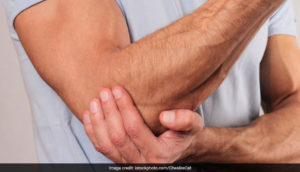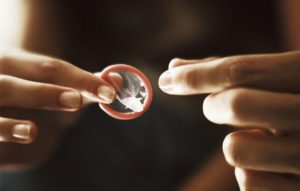Screening for Erectile Dysfunction Should Be Routine in Diabetes
2017-07-21
Erectile dysfunction affects more than 50% of men with diabetes worldwide and more than 65% of men with type 2 disease, new data from a large meta-analysis reveal.
Clinicians should therefore screen men with diabetes for erectile dysfunction as part of a routine cardiovascular health assessment, say Youssef Kouidrat, MD, of the Maritime Hospital in Berck, France, and colleagues in a report published online July 18, 2017 in Diabetic Medicine.
“Erectile dysfunction is common in diabetes, affecting more than half of men with the condition and with a prevalence odds of approximately 3.5-times more than controls,” say the authors.
“Our findings suggest that screening and appropriate intervention for men with erectile dysfunction is warranted.”
Erectile Dysfunction Is Likely an Early Marker of Undiagnosed Diabetes
A variety of studies have shown that advancing age, duration of diabetes, poor glycemic control, hypertension, hyperlipidemia, sedentary lifestyle, smoking, and the presence of other diabetic complications are associated with diabetes-related erectile dysfunction.
In this latest meta-analysis, compared with healthy controls, the worldwide prevalence of erectile dysfunction in men with diabetes was 52.5%. The prevalence was 66.3% in type 2 diabetes, 37.5% in type 1 diabetes, and 57.7% in both types of diabetes (all P < .0001).
However, the analysis also uncovered significant differences in the reported prevalence of erectile dysfunction in diabetes, ranging from 35% to 80%, the study authors note.
Noting that different validated questionnaires such as the International Index of Erectile Function 5 (IIEF-5) and Sexual Health Inventory for Men (SHIM) are useful in the diagnosis of erectile dysfunction, second author Damiano Pizzol, MD, of Doctors With Africa Cuamm, in Beira, Mozambique told Medscape Medical News that international consensus on a single standardized diagnostic questionnaire would be ideal.
For the meta-analysis, the researchers conducted a literature search of major databases up to November 2016, producing 145 relevant studies representing 88,577 men with a mean age of 56 years.
The prevalence of erectile dysfunction was highest (82.2%) in 17 studies that used the SHIM questionnaire, although the authors note that studies with a higher percentage of people with hypertension moderated the results.
The analysis also shows that the risk of erectile dysfunction increases in men with diabetes after the age of 60. This is consistent with the Massachusetts Male Aging Study, which showed an age-adjusted risk of erectile dysfunction in men with diabetes that was twice that of men without diabetes.
And the finding that the prevalence of erectile dysfunction was higher in men with type 2 diabetes than in those with type 1 diabetes suggests that many men with type 2 diabetes may already have erectile dysfunction at diagnosis, say the researchers, pointing to studies showing that erectile dysfunction is an early marker of undiagnosed diabetes.
As previously reported by Medscape Medical News, screening for diabetes may be particularly important in middle-aged men with erectile dysfunction. That research suggested identification of undiagnosed cardiometabolic risk factors may improve early diagnosis and subsequent treatment.
Dr Kouidrat and colleagues also point to increasing evidence of a direct link between erectile dysfunction and cardiovascular disease, with the former being a red flag for early atherosclerosis, they say, noting that patients with diabetes are at increased risk for cardiovascular morbidity and mortality.
“The relationship of erectile dysfunction with certain risk factors, such as age or cardiovascular risk factors (arterial hypertension), are well known and our study corroborates these associations,” they write.
Don’t Neglect Young Men With Type 1 Diabetes
Looking ahead, Dr Kouidrat and colleagues suggest that prospective and longitudinal studies of populations with type 1 and type 2 diabetes are needed to characterize other risk factors involved in the development of erectile dysfunction, such as duration of disease and smoking.
Erectile dysfunction also contributes to poor quality of life and, in some cases, the onset of depression. Again, early detection is essential and improved psychological well-being requires a multidisciplinary approach that includes psychosexual counselling and advice from a urologist specializing in erectile dysfunction, they say.
A prior study of young men 18 to 35 years of age with type 1 diabetes shows that more than a third experience erectile dysfunction.
Those researchers urge clinicians to be aware of this, noting that screening shouldn’t be neglected even in young patients with type 1 diabetes. They also stress that erectile dysfunction occurs at least a decade earlier in those with diabetes, and is more severe and less responsive to oral medication than in patients without diabetes.
“The real challenge is to make young males aware of health, particularly sexual and reproductive health,” noted Dr Pizzol.
The study authors have reported no relevant financial relationships.
Diabet Med. Published online July 18, 2017. Abstract
For more diabetes and endocrinology news, follow us on Twitter and on Facebook.
http://www.medscape.com/viewarticle/883199#vp_2










